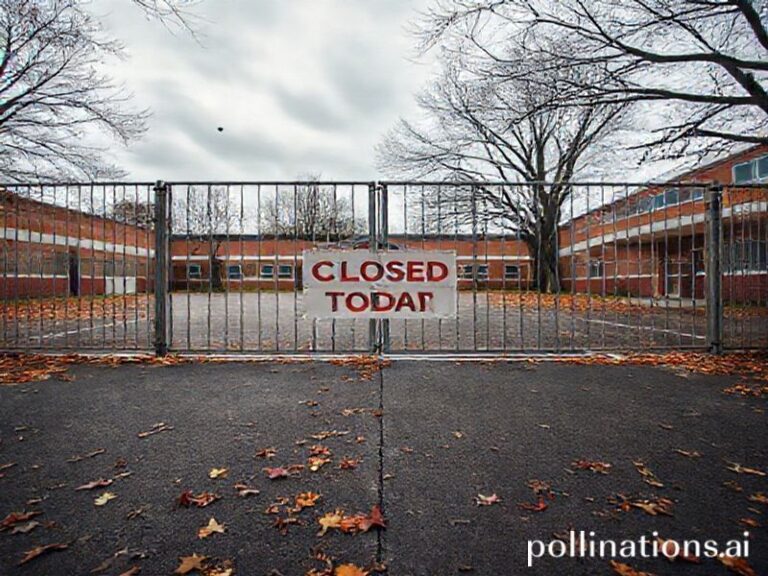How One Kiwi Analyst Accidentally Sanctioned the World: The Stephanie White Effect
Stephanie White and the Quiet Collapse of Borders
By Our Man in the Departure Lounge
Geneva—If you’ve never heard of Stephanie White, congratulations: you’re exactly the kind of blissfully ignorant citizen every government secretly envies. While the rest of us were doom-scrolling through intercontinental missile tests and cryptocurrency funerals, White—an unassuming supply-chain analyst from Christchurch—managed to detonate a miniature geopolitical bomb with nothing more lethal than an Excel sheet and a conscience. The result is a slow-motion avalanche that has already reached boardrooms from Lagos to Lima, and may yet redefine what “sovereignty” means when every barcode is a passport stamp.
White’s sin, if you want to call it that, was compiling a real-time dashboard of which Western multinationals were still importing Russian timber via Chinese shell companies after pinky-swearing they’d gone cold turkey. She posted the file on GitHub—an act roughly equivalent to leaving a loaded bazooka in a Montessori sandbox. Within 48 hours, the Norwegian pension fund KLP had liquidated $38 million in furniture-maker bonds, the Singaporean logistics giant PSA cancelled three trans-Siberian rail contracts, and a Milanese fashion house discovered its “ethically sourced” oak hangers were basically Wagner-group toothpicks. All because one woman in New Zealand couldn’t sleep after watching TikToks from Kharkiv.
International reaction divided along the usual fault lines. The EU’s foreign-affairs spokesman applauded “citizen-driven transparency” while privately asking Microsoft if GitHub could maybe throttle downloads to “manage market volatility.” Moscow’s UN envoy denounced “data terrorism” and threatened symmetrical retaliation—ominous until you remember the Kremlin can’t even symmetrical-retaliate its own conscripts out of a trench. Meanwhile, Beijing’s censors ghost-deleted every mention of White’s surname, inadvertently triggering a run on the Chinese character for “white” in baby-name registries. Somewhere in the afterlife, Kafka is taking furious notes.
The broader significance, if we must be grown-ups, is that nation-states are losing their monopoly on economic sanctions. For seventy years, embargoes were the exclusive hobby of men in mahogany rooms with flags and budget lines. Now a junior analyst on the wrong side of the planet can crater a credit rating before her first coffee. Call it the democratization of destruction: every spreadsheet jockey is a potential cruise missile, every macro a macro-aggression. The WTO, still arguing over fax paper, has responded by scheduling a “listening session” for 2027—please hold for the next available century.
Naturally, the private sector is adapting with its usual moral clarity. Several Fortune 500s have begun hiring “sanctions ethnographers” whose job is to lurk on Reddit and feel the geopolitical vibes. Goldman Sachs is piloting an AI that predicts which mid-level employee will leak the next scandal, a sort of corporate Minority Report for conscience. And in the ultimate irony, Russian state media has started citing White’s data to prove that Western capitalism is “a house divided”—which, to be fair, is exactly the kind of self-own that makes late-stage empire so binge-worthy.
For the average Earthling, the takeaway is bracing: the walls you think protect your salary, your reputation, or your imported breakfast cereal are now made of pixels and shame. Stephanie White didn’t set out to become the Edward Snowden of plywood; she just wanted the numbers to match the press releases. In doing so, she reminded a planet teetering on climate collapse and nuclear nostalgia that the most dangerous weapon remains an inconvenient fact, wielded by someone who still believes facts should matter.
As for White herself, she’s reportedly fielding job offers from NGOs, hedge funds, and at least one micronation that wants to appoint her “Minister of Existential Fact-Checking.” She has so far declined, citing a preference for gardening and “fewer death threats.” The rest of us, meanwhile, will keep refreshing our feeds, praying the next conscientious objector chooses a quieter spreadsheet—maybe something about artisanal lettuce—before the entire global economy folds into a single, catastrophic #REF! error.







